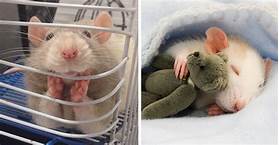Can You Own a Pet Turkey?
Turkeys are fascinating creatures that have piqued the interest of homeowners who are looking for uncommon pets. While they have a reputation for being large, loud, and messy, there is a growing trend of people keeping them as companions. Before deciding if a turkey is a suitable pet for you, it is essential to understand the unique requirements and challenges of owning one.

Temperament
1. Personality: Turkeys have distinct personalities and can be very friendly and affectionate towards their owners. They are generally curious and sociable birds that enjoy interacting with humans.
2. Temperament: Turkeys can be territorial and aggressive towards other animals and strangers. Therefore, proper socialization and training are crucial to prevent behavioral problems.
3. Noise: Male turkeys, known as toms, are notorious for their loud gobbling sounds, which can be a nuisance to neighbors and disruptive to your daily life.
Health and Care
1. Diet: Turkeys require a balanced diet that includes a variety of fresh vegetables, fruits, grains, and commercial turkey feed. Providing them with a balanced diet is essential for their health and well-being.
2. Housing: Turkeys need a spacious and secure enclosure with adequate shelter to protect them from the elements. The enclosure should be large enough to allow them to move around comfortably and have access to food, water, and a place to roost.
3. Veterinary Care: Regular check-ups with a veterinarian specializing in exotic pets are essential to ensure that your turkey remains healthy and receives proper preventive care and treatment if any health issues arise.
Legal and Safety Concerns
1. Local Regulations: Before acquiring a turkey as a pet, it is imperative to research local regulations and zoning laws that may prohibit or restrict the keeping of poultry within certain areas.
2. Safety: Turkeys can be aggressive, especially during mating season. It is essential to take safety precautions to prevent attacks or injuries by properly handling and training them.
3. Poultry Diseases: Turkeys are susceptible to various diseases and parasites that can be transmitted to other animals and even humans. Proper hygiene, biosecurity measures, and regular veterinary care are essential to prevent the spread of diseases.
Conclusion
Owning a pet turkey can be a rewarding experience, but it is not without its challenges. Before making a commitment, it is crucial to thoroughly research the specific needs and potential drawbacks of keeping a turkey as a pet. Consider the temperament, care requirements, legal and safety concerns, and whether you have the knowledge, time, and resources to provide a suitable and enriching environment for your feathered companion.
Declaration: All article resources on this website, unless otherwise specified or labeled, are collected from online resources. If the content on this website infringes on the legitimate rights and interests of the original author, you can contact this website to delete it.





